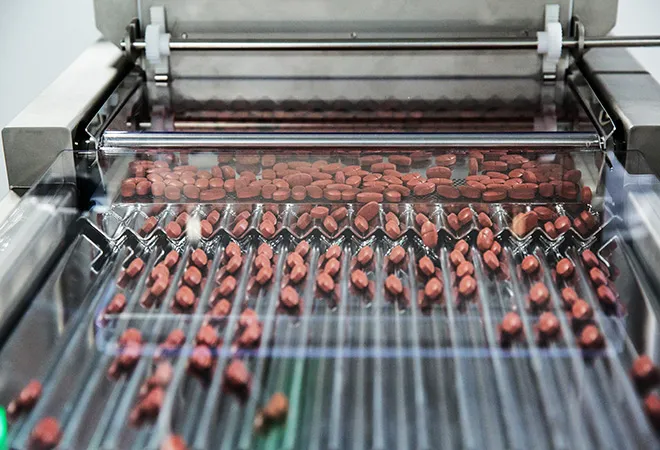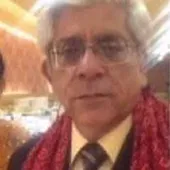-
CENTRES
Progammes & Centres
Location
The knowledge base, strength and capabilities of the Indian pharma have not been appreciated and image of Indian pharma industry is constantly being maligned.

US generic market is valued at $103.8 billion in 2018, with growth rate of 12.1% between 2011 and 2018, according to IMARC Group. On 10 May, 44 American states filed a 524 page antitrust lawsuit against Horizontal Conspiracy for allocation of market and fixing prices of multiple generic drugs in violation to the Sherman Act of US against 20 firms out of which seven are Indian: Sun Pharma’s Taro, Zydus, Lupin, Aurobindo Pharma, Dr. Reddy’s, Wockhardt, and Glenmark. Other companies under the scanner include multinational firms such as Heritage Pharma, Apotex, Mylan, Par Pharma, Pfizer and Sandoz.
Prices of 112 critical drugs were inflated between July 2013 and January 2015, by over 1,000% in certain cases. Dr. Reddy’s and Aurobindo Pharma, both have denied the allegations. Teva has stated that it is committed to complying to all applicable laws and will continue to vigorously defend the company. Pfizer and Sandoz have also denied any wrong doings.
Today Indian pharmaceutical industry exports generic medicines worth USD 19.14 billion to more than 200 countries across the world including those with Stringent Regulatory Authorities (SRA) such US Food and Drug Administration, European Medicines Agency, Pharmaceuticals and Medical Devices Agency of Japan, Therapeutic Goods Administration of Australia, South African Health Products Regulatory Authority and others. Additionally, WHO has also approved more than 1,400 units complying with the WHO GMP for supplies. Almost 70% of the WHO vaccine requirements are met by India.
According to the US Food and Drug Administration: “Generic drugs are just as safe and just as effective as their brand-name counterparts, and they are a cost-effective way of achieving substantial savings.” Any new drug discovered by a pharmaceutical company is entitled for a patent for 20 years. According to Association for Accessible Medicines (AAM), after a patent expires, a generic and much more economical version of the drug may become available under “generic” name while meeting the same FDA standards as the original.
Indian pharma exports generics (at very low values) and occupies the tenth rank as an exporter with around 3.5% contribution on the global scale. It ranks the third largest in terms of volume and thirteenth largest in terms of value. A study published by Journal of the American Medical Association (JAMA) revealed that around ninety percent of the prescriptions in the US are for generic drugs. The Times of India mentioned that forty percent of the generic drugs consumed in the US are supplied by the Indian pharmaceutical manufacturers implying that a large section of US population is being treated by Indian generics. These generic drugs help not only in saving healthcare costs but also the lives of millions.
In the book Bottle of Lies, Katherine Eban, an author and an investigative journalist, puts Indian companies in the dock by referring and reiterating stories of pharmaceutical companies from the past. It has very unfairly targeted the Indian pharmaceutical industry while being soft and letting go off a major chunk of industries belonging to other parts of the world involved in cases of similar offense if not more.
The book simply digs the past of Ranbaxy Laboratories and other manufacturers for drug safety violations and other offences. It tries to build a story of deceit using unsubstantiated comments based on decade old allegations that no more stand relevant in present day. The entire story on the generics has been written with a prejudiced mind, negative approach and is indeed very unfortunate.
Ex-FDA chief Scott Gottlieb said that generic drugs approved by the US FDA are safe and effective and equal to their branded counterparts, and though the generic industry has faced challenges, much has changed since the last decade. He mentioned that the regulator’s oversight has vastly expanded and some bad problems did arise years ago. However, we managed to learn from them. Gottlieb said that FDA’s total pre-approval and surveillance inspections in India rose from 66 in 2007 to 252 in 2018. Today’s generic drug framework is vigilant and upholds FDA’s gold standard. Nearly 90% of the medicines that American patients take are non-branded generics. Across the world, they have become one of the key means of providing accessible and affordable healthcare, being cheaper than the branded drugs.
The Indian industry; wherever deficiencies were pointed out after USFDA inspections, carried out remedial measures to the satisfaction of USFDA. According to USFDA data, 2018 witnessed only 4 percent inspections classified as Official Action Indicated (OAI) in contrast to 15 percent in 2017 reflecting improvement shown by Indian pharmaceutical companies in USFDA inspection outcomes. The knowledge base, strength and capabilities of the Indian pharma have not been appreciated and image of Indian pharma industry is constantly being maligned.
The US healthcare system has benefited to the tune of $2 trillion in savings from generic drugs in the last decade. Of that, $293 billion came in 2018 alone as per a report by consulting firm IQVIA Institute for Human Data Science. Moreover, these issues are not just limited to Indian pharma companies. Such aberrations are observed all across the world. Which raises the much anticipated question that after all why is there such a bias in reporting of cases like this when transparency, quality checks and ethics are applicable to one and all?
The views expressed above belong to the author(s). ORF research and analyses now available on Telegram! Click here to access our curated content — blogs, longforms and interviews.

Ashok K. Madan is Executive Director with Indian Drug Manufacturers Association and an alumnus of IIFT. He has been working with the Pharma Industry since ...
Read More +